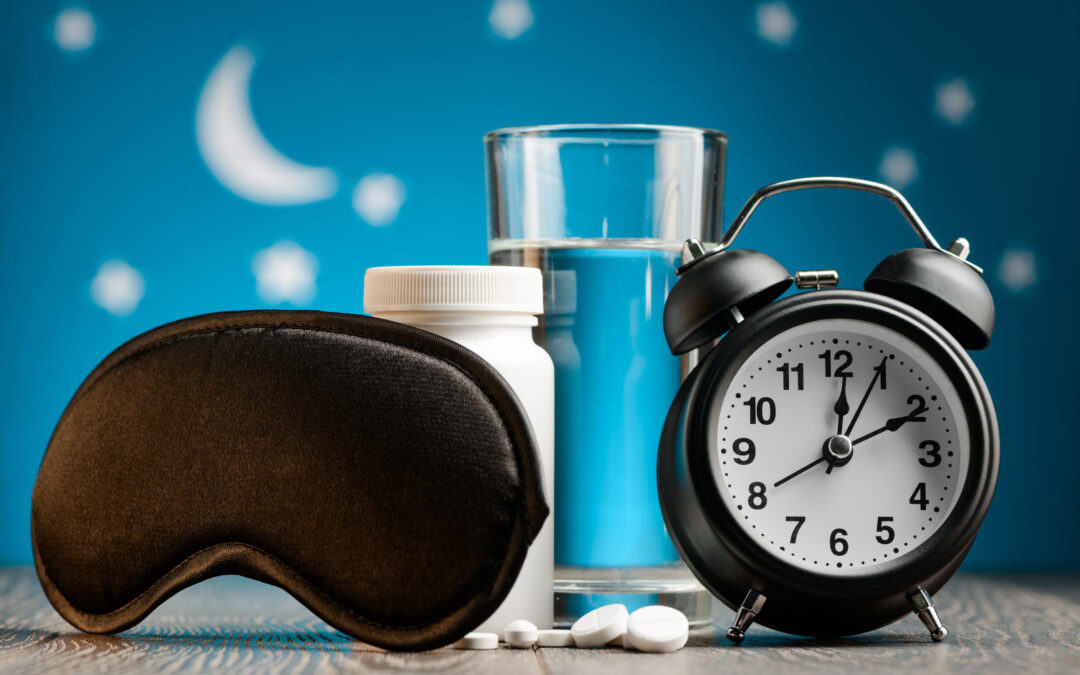The Pros and Cons of Sleep Enhancers
Good sleep is essential to good health. According to the research studies, between 10 and 30 percent of all adults struggle with chronic insomnia, a common sleep disorder that affects more women than men, reflected by women’s 40+ percent higher lifetime risk rate. Most cases of insomnia stem from poor sleep habits, depression, anxiety, lack of exercise, chronic illness, and sometimes prescription sleep enhancers. Common symptoms include difficulty falling or staying asleep and not feeling well-rested.
80 percent of all Americans report problems with sleep at least once a week, according to a 2018 Consumer Reports national survey. More than 80 percent of adults who use prescription sleep medications also report experiencing residual effects like oversleeping, feeling groggy, or having difficulty concentrating the next day. These medications include pills that put you to sleep like Ambien and Sonata. The survey revealed that nearly 50 percent of Americans reported trouble staying asleep, waking up at least once during the night, and then have difficulty nodding back off again. Lunesta and Restoril are most often prescribed for patients who have trouble staying asleep.
What is Sleep Enhancer?
Sleep enhancer is a catch-all name for products that enhance or promote better sleep. Americans spend an astonishing amount of money on sleep aids and sleep enhancers – accessories and products that include everything from herbal supplements and prescription sleep medications to sleep accessories. Essentials like mattresses, bedding, pillows, and innovations such as light therapies and weighted blankets are also lumped into the tens of billions of dollars spent annually. According to a recent report by Infinium Global Research, the global market for sleep aids and sleep enhancers will grow from a record $81.2 billion in 2020 to $112.7 billion worldwide by 2025.
With so many people having trouble sleeping, what steps can you take to ease insomnia and get better rest? The most effective treatments for insomnia consist of improving sleep hygiene habits, practicing proven relaxation techniques such as deep breathing, and cognitive behavior therapy. Identifying and treating underlying causes for chronic insomnia or other symptoms of sleep problems may include a professional sleep study at home or during an overnight clinical stay. A medical evaluation can uncover sleep issues such as obstructive sleep apnea that disrupts breathing and oxygen levels or restless legs syndrome (a sleep-related movement disorder). Sleep enhancers or pills may also be used for short-term relief from insomnia but patients should be closely monitored for side effects reported by 8 in 10 individuals using prescription sleep aids.
Over-the-Counter Sleep Aids That Work
“There’s no sleep aid that’s 100% without risk,” says Scott Kutscher, MD, a clinical associate professor of psychiatry and behavioral sciences at Stanford Sleep Sciences Center in a recent article on sleep aids by SingleCare, a prescription drug discount application.
Approximately 20 percent of American adults tried a natural sleep remedy for sleep problems in 2019, and the number only increased in 2020. Over-the-counter sleep aids that work for many people include familiar supplements such as melatonin, valerian root, and magnesium. Antihistamines such as those found in Benadryl, Nyquil, Tylenol PM, and Advil PM also have some sedating effects for people with insomnia and those who also experience nighttime pain. These over-the-counter sleep aids spur drowsiness by blocking a chemical in the body called histamine. Unfortunately, histamines also play a role in regulating wakefulness so many people will experience residual side-effects such as morning drowsiness (AKA sleep hangover), dry mouth, sleep-walking, or confusion, especially in elderly users.
CBD is also gaining popularity since studies discovered a direct correlation between CBD and benefits for insomnia symptoms, potentially answering every insomniac’s question of how to sleep restfully. With CBD products being the hottest new thing in sleep enhancers, many manufacturers are rushing to capture this emerging market.
While several options presented here may be useful for promoting restful sleep, we counsel using caution: consult your doctor or pharmacist before taking them as there may be interactions with other medications. Finally, it’s worth noting that CBD, natural sleep aids, and other supplements like over-the-counter sleep aids are not approved by the U.S. Food and Drug Administration (FDA), so they don’t undergo rigorous testing for safety and effectiveness like prescription drugs. Since these products are unregulated, sleep enhancers, aids and supplement formulas and potencies can vary widely by manufacturer or even from one batch to another.
If you’re suffering from difficulty falling asleep, staying asleep, or experiencing frequent periods of insomnia, see your doctor or consult a sleep specialist before utilizing sleep enhancers or sleep aids.


